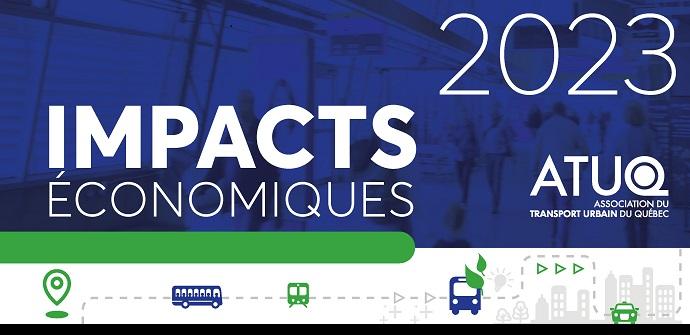Montréal, February 5, 2024 – The Société de transport de Montréal (STM) commends a new study released today by ATUQ, Quebec’s urban transit association, on the economic impact of public transit in Quebec.
“This study reaffirms the STM’s importance within the economic ecosystem of the metropolitan area and the province of Quebec as a whole,” says Éric Alan Caldwell, Chair of the STM Board of Directors. “In the coming years, the STM will have to tackle some major challenges while facing limited resources and rising costs. It is vital that the Quebec government provide our organization with a new recurring, indexed and predictable financial framework so that we can pursue our mission of providing quality public transit and responding effectively to the travel needs of our customers.”
Study highlights
Among the key highlights of the study, the following are of particular note:
- The STM injected $2.8 billion into the economy in 2022, including $1.89 billion in operations and $920 million in capital investments ($870 million excluding land acquisition).
- The STM’s spending supported 16,565 direct and indirect jobs (person-years) and generated $2.2 billion in value added (contribution to Quebec’s gross domestic product).
- The STM’s activities generated $336.5 million in tax revenue for the Quebec government and $114.1 million for the Canadian government.
- Overall, the STM injected $1.5 billion into the economy of the administrative region of Montréal through its suppliers, supporting a total of 5,804 jobs (person-years) and generating $857.5 million in value added in the area.
- Over 60% of the STM’s total value added in Quebec is generated outside the administrative region of Montréal.
Thanks to the expertise and efforts of the 10,413 employees who operate our métro, bus and paratransit networks, the STM provides Montrealers with sustainable, reliable and safe mobility solutions, delivering more than 237.1 million trips in 2022, including 3.2 million trips in paratransit. Every day, the STM runs approximately one million trips on its 71-kilometre métro network, which consists of four lines, and its bus network, which consists of 225 lines.
For more information on the studies conducted by ATUQ, go to
